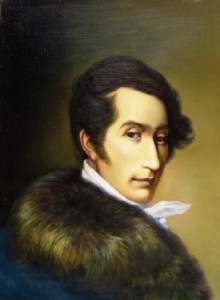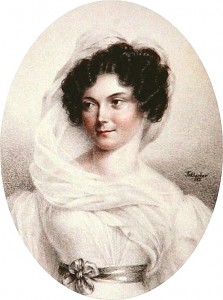
Carl Maria von Weber
Carl Maria von Weber: Grande Polonaise in E-flat major, Op. 21

Margarethe Bernbrunn
Carl Maria von Weber: Abu Hassan (excerpts)
The state of Weber’s finances became more desperate from day to day. He soon became enveloped in a net of liabilities, and continued to borrow money to pay his debt. To make matters worse, Weber’s father Franz Anton—who had appropriated the title “Baron” and the “von” in his name from an extinct Austrian noble family—misappropriated a vast quantity of Duke Ludwig’s money. And thus, Carl Maria took drastic actions. In 1808 he diverted money from the ducal funds to cover his and his father’s personal debts. “To repay this ‘borrowing’ Weber then compounded the problem by obtaining a loan from the innkeeper Hönes, who lent him 1000 gulden in the belief that Weber would procure for his son a nominal court appointment that would exempt him from military service (a scheme that Duke Ludwig himself used to finance his extravagant lifestyle).” When Hönes’s son was nevertheless conscripted away and died in the war, his father lodged an official complaint, bringing to light the sale of military exemptions. Weber had just completed his opera Silvana and was leading rehearsals, when a group of policemen stormed the opera and arrested him in the name of the King. Concurrently, his father had been arrested in his apartment.
Carl Maria von Weber: Silvana, Act 1
Charged with embezzlement, participation in a corrupt draft-evasion scheme, and theft of royal silverware, Weber’s criminal trial was heard on 9/10 February 1810 by the King. The King dismissed the criminal charges—probably for obtaining Weber’s silence about the corruptions of his son Duke Ludwig—and referred the matter to the civil court. Since Weber was unable to cover his debts of about 2600 gulden, he was placed under civil arrest on 18 February. Weber did put the finishing touches on Silvana during his incarceration and on 23 February was released by the King. However, he received a lifelong banishment from the country of Württemberg! Three days later, Weber and his father were escorted to the border and unceremoniously evicted! With Weber banned, Silvana was premiered on 16 September 1810 in Frankfurt, and Gretchen Lang sang the title role alongside Caroline Brandt, the woman Weber would eventually marry.

